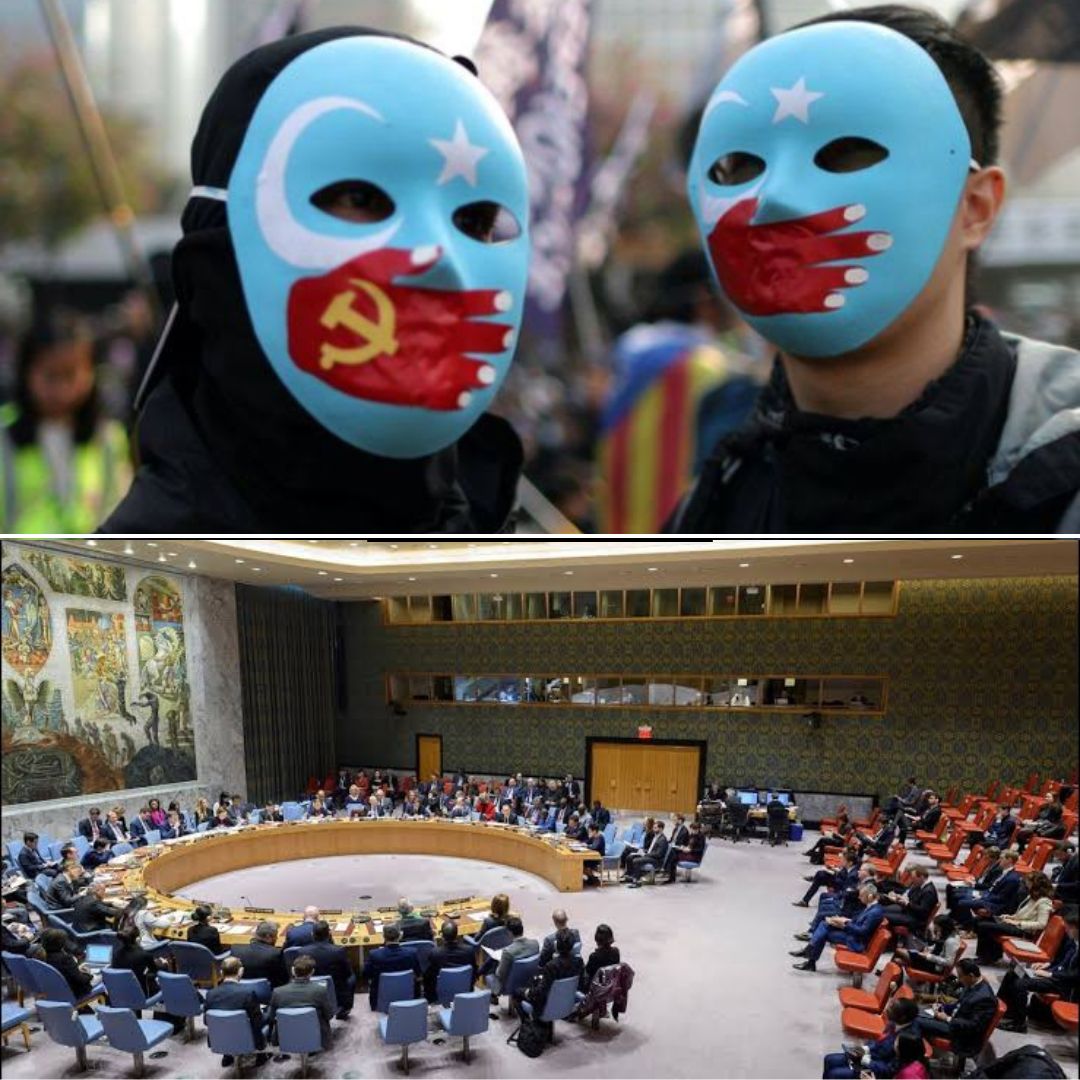India Abstains From Voting On Uyghur Human Rights Crisis: Here's All You Need To Know About The Issue
Writer: Laxmi Mohan Kumar
She is an aspiring journalist in the process of learning and unlearning many things. Always up for discussions on everything from popular culture to politics.
Others/World, 8 Oct 2022 3:25 AM GMT
Editor : Snehadri Sarkar |
While he is a massive sports fanatic, his interest also lies in mainstream news and nitpicking trending and less talked about everyday issues.
Creatives : Laxmi Mohan Kumar
She is an aspiring journalist in the process of learning and unlearning many things. Always up for discussions on everything from popular culture to politics.
The Uyghurs, an ethnic minority in China, were found to be subjected to severe human rights crisis for years under President Xi Jinping's government. The issue was finally brought up for debate at the UN, and India abstained from voting on the same.
A draft resolution was presented at the United Nations Human Rights Council on October 7 to hold a debate on the human rights crisis situation happening against the Uyghur Muslims in China's Xinjiang region. This was the first time the topic had been taken to the international body, and India chose to abstain from voting on the draft.
With 17 favourable votes, 19 against the draft and 11 countries abstaining from the voting, including India and Ukraine, the draft was rejected at the UN Council.
In response to this, the China director at Human Rights Watch, Sophie Richardson, said, "While the Council's failure to adopt the proposal is an abdication of responsibility and a betrayal of Uyghur victims, the extremely close vote highlights the growing number of states willing to take a stand on principle and shine a spotlight on China's sweeping rights violations".
As more states have started coming forth to discuss the issue, here's looking back at the historical Uyghur crisis and the large network of detention camps that Beijing has labelled as "re-education camps".
Who are the Uyghurs?
The Uyghurs are a Turkic ethnic group that is native to the Xinjiang Uyghur Autonomous Region (XUAR) in Northwest China. There are about 12 million Uyghurs living in China, and they have been recognised as one of China's 55 officially recognised ethnic minorities.
Half of the XUA region's population was constituted by the Uyghurs, and in recent decades the region saw a mass migration of a group of Chinese majority, the Han Chinese, in an alleged move by the state to dilute the minority population.
Anti-Han and separatist sentiment began rising right from the 1990s and sometimes took violent turns. In 2009, about 200 people died in the communal clashes, and the blame was pinned upon the Uyghurs. This finally led to a security crackdown, with Xinjiang being covered by a network of extreme surveillance systems. Several Human Rights Watch groups claimed that the state police also used applications to monitor the residents' behaviour.
By 2017, President Xi Jinping made it clear by the documents and issued an order saying all religions in China should be Chinese in orientation. The cultural erasure was becoming a lot more evident as China began targeting Muslim religious figures and banning religious practices in the region, along with destroying their places of worship.
The Relevance Of Xinjiang Region To The Chinese
Lying in the northwest of China, Xinjiang is the country's largest region and has powers of self-governance. They had also briefly declared their independence but were brought under the communist state's control in 1949. So while it is autonomous in nature, in practice, the region is subjected to some amount of restrictions by the state.
As per a report by the BBC, the region is a crucial trade link that produces about a fifth of the world's cotton and other resources such as oil and natural gas. Being resource-rich came along with the cons of forced labour that enabled large-scale export chains, as per several reports.
Allegations Against The State Of China
In the year 2017, a few exiled Uyghurs released a collection of secret Chinese government documents, known as the China Cables, to the International Consortium of Investigative Journalists. These leaked documents made clear that the camps established by the state were being run as high-security prisons. This was supported by police files obtained by the BBC in 2022, which exposed China's use of armed officers and the shoot-to-kill policy for those who attempt to escape.
The Uyghurs, who did manage to escape the camps, reported severe physical, mental and sexual torture. Named as a "re-education camp" by the Chinese, these camps have allegedly been involved in ethnic cleansing through measures such as forced mass sterilisation of the Uyghur women to suppress the population, separating children from their families, and attempting to wipe out their cultural traditions.
Based on these revelations made by the minorities, several human rights groups and institutes came up with evidence that there are more than 380 of these "re-education camps" that have detained over one million Uyghurs against their will.
Many superpower countries, including the United States and the United Kingdom, condemned China's actions as "crimes against humanity". However, China continues to deny any such activities of human rights abuses in Xinjiang.
Even after many reports, such as the Xinjiang Police Files, came to light, the Chinese government stood their ground and said that the crackdown in Xinjiang is "necessary to prevent terrorism and root out Islamist extremism". The camps, according to the state, are being used as a tool for anti-terrorism and are re-educating the inmates.
Also Read: Tortured, Forced To Eat Pork, Consume Alcohol: Uighur Muslims' Tale At Chinese Detention Camps
 All section
All section















